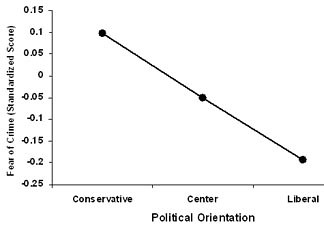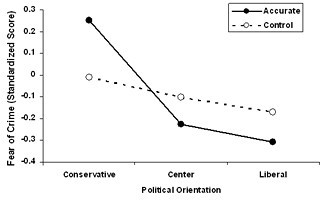First, allow me to premise this by saying that I don't care what you believe, and I have no interest in telling you whether you are wrong or right.
Now that that's out of the way, here's something that I have been thinking about.
Liberal or conservative, Democrat or Republican, you likely believe what you believe. That is, you likely think that you are correct and the other side is wrong.
Further, you may sit around and wonder -- if you are
so right -- why other people don't just come around to your point of view. You're right, after all.
So you might be perplexed that the
latest Gallup poll shows a dead heat between John McCain and Barack Obama at 44% each. Surely one side is the best, so how can we be so completely divided?
Let's put that question on the shelf and talk about something completely different. Let's talk about the
prisoner's dilemma -- a tool of
game theory.
The basic idea is so familiar to television crime dramas that I won't spend much time describing it. Two people are caught by the police, accused of a crime, and separated. Each person is offered a deal if they rat out the other one. The best possible
overall outcome is for both partners to stay silent. If either one of them takes the deal, called defecting in terms of the game, the one who defects goes free and the other is severely punished. If they both defect, then they both get much longer sentences than if they had both stayed silent, or cooperated in terms of the game.
So what do you do? Cooperation is the best, on average, solution. However you can try to help yourself at another's expense by defecting. Unless your partner defects.
A single trial of prisoner's dilemma is not very interesting. Instead, human nature begins to reveal itself with iterated prisoner's dilemma. That is, two partners (opponents?) play the game over and over again. After each trial, each partner is given a sentence commiserate with who defected and who cooperated. You keep adding them up, and, as with golf, the player with the lowest score wins.
Although you may find it difficult to believe, there are actually contests centered around the iterated prisoner's dilemma. People program complex strategies into a computer to compete, because in the reiterated prisoner's dilemma, you
know what your partner did on the last trial (and those that came before). You could program the "golden rule," for example, but I venute that you would lose a lot.
And it turns out that the best long-term strategy appears to be elegantly simple. They call it tit-for-tat. You cooperate on the first trial, and then you do whatever your opponent did on the last trial. The best long-term average is repeated cooperation, and if both partners cooperate until the end of the game, they are both assured the lowest possible long-term solution.
Actually, the algorithm is improved with the addition of occasional forgiveness so that you do not get stuck in an endless loop of defections.
However, in a
population of computers (or people) practicing tit-for-tat, there develops an opportunity for a small proportion of the population to exploit their neighbors. I shan't bore you with the particular details -- and I cannot even remember where I read this -- but
Wikipedia suggests that perhaps it was Richard Dawkins' brilliant book
The Selfish Gene.
The idea is that with an entire population playing by one set of rules, an opportunity develops to exploit that system by playing by different rules. In the case of tit-for-tat; however, only a few rogue individuals can buck the system.
Returning to politics, it occurred to me that this relative homeostasis over time of political parties owes to some sort of equilibrium due to principles of game theory (admittedly not a novel idea).
That is, if the entire population was conservative (in the
classical theoretical sense), for instance, there would be much hierarchy, tradition, and rule-governed behavior. This would create an opportunity for agents to exploit those rules. In such a society, agents that most valued sovereignty of the individual (i.e.,
classical liberalism) would be able to profit disproportionately.
The converse should be true, too. Look at Soviet Russia for example. When all wealth was to be shared equally, most people had no choice but to share. But for those that could establish a hierarchy and amass wealth (i.e., the politicians), they had wealth beyond compare.
In a
parliamentary system, there are multiple constituencies that must form collaborations in order to achieve a majority or plurality. In our two-party system, we do something similar by courting certain sections of the population into the various parties (i.e., the bases).
Earlier this decade, "soccer moms" were all the rage and were expected to decide elections. There will be another key constituency this year.
If you look at the history of this country, neither political camp has dominated for too long. It seems to me that this is based in game theory. As the pendulum begins to swing one way, it creates a vacuum behind it. This vacuum then is an opportunity for some (likely) disenfranchised constituency. As they rush in to fill the vacuum, balance is restored. Several people have made a similar argument in Republicans' aggressive adoption of the evangelical community, for example.
Surely this idea is not new. It was new to me, and it seems at least plausible. Even if it implausible, it was fun to think about for a couple of hours.
Labels: game theory, politics




